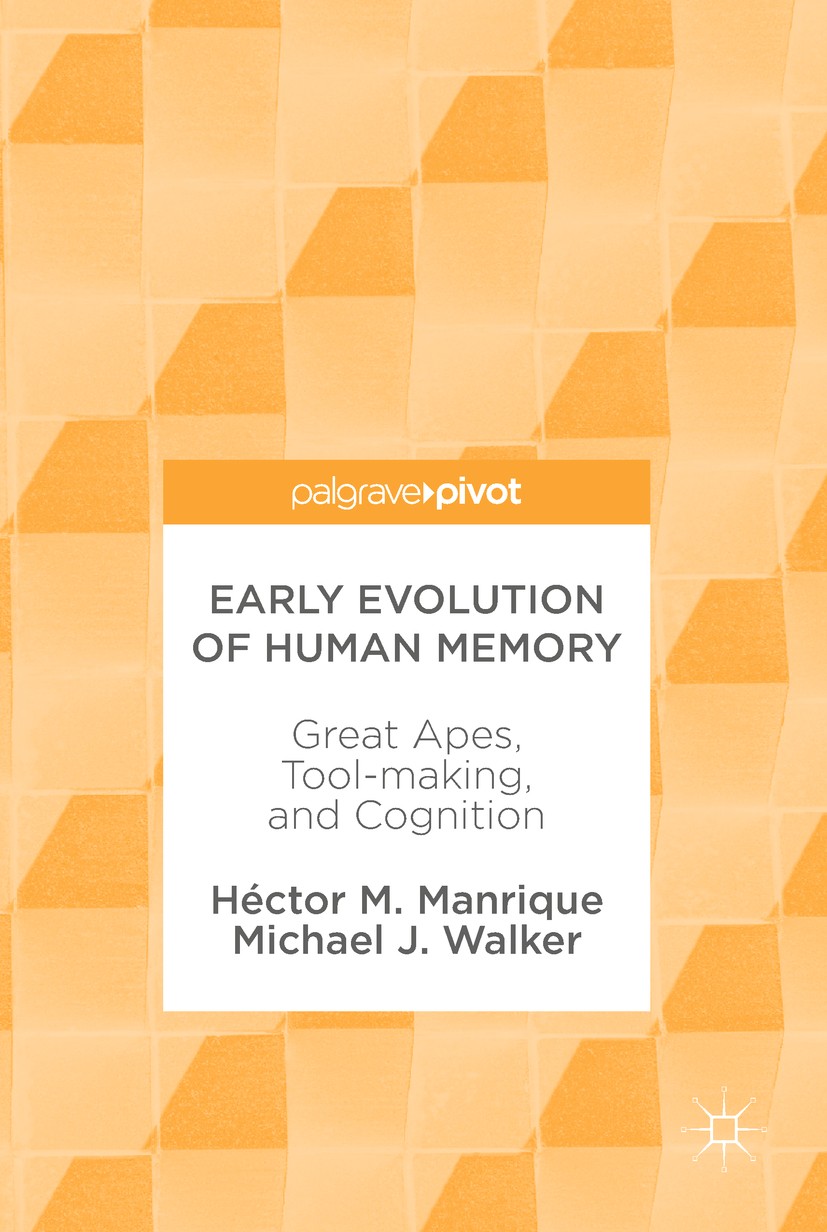| 书目名称 | Early Evolution of Human Memory | | 副标题 | Great Apes, Tool-mak | | 编辑 | Héctor M. Manrique,Michael J. Walker | | 视频video | http://file.papertrans.cn/301/300719/300719.mp4 | | 概述 | Provides a critique of received wisdom through a multidisciplinary consideration of empirical experiments, neuroscientific findings, and archeological records.Highlights the part played by the develop | | 图书封面 |  | | 描述 | This work examines the cognitive capacity of great apes in order to better understand early man and the importance of memory in the evolutionary process. It synthesizes research from comparative cognition, neuroscience, primatology as well as lithic archaeology, reviewing findings on the cognitive ability of great apes to recognize the physical properties of an object and then determine the most effective way in which to manipulate it as a tool to achieve a specific goal. The authors argue that apes (Hominoidea) lack the human cognitive ability of imagining how to blend reality, which requires drawing on memory in order to envisage alternative future situations, and thereby modifying behavior determined by procedural memory. This book reviews neuroscientific findings on short-term working memory, long-term procedural memory, prospective memory, and imaginative forward thinking in relation to manual behavior. Since the manipulation of objects by Hominoidea in the wild (particularly in order to obtain food) is regarded as underlying the evolution of behavior in early Hominids, contrasts are highlighted between the former and the latter, especially the cognitive implications of ancien | | 出版日期 | Book 2017 | | 关键词 | Cognitive Psychology; Cognitive Evolution; Human Evolution; Early Evolution; Primatology; Great Apes; Tool | | 版次 | 1 | | doi | https://doi.org/10.1007/978-3-319-64447-9 | | isbn_softcover | 978-3-319-87796-9 | | isbn_ebook | 978-3-319-64447-9 | | copyright | The Editor(s) (if applicable) and The Author(s) 2017 |
The information of publication is updating

|
|
 |Archiver|手机版|小黑屋|
派博传思国际
( 京公网安备110108008328)
GMT+8, 2025-12-27 05:22
|Archiver|手机版|小黑屋|
派博传思国际
( 京公网安备110108008328)
GMT+8, 2025-12-27 05:22


